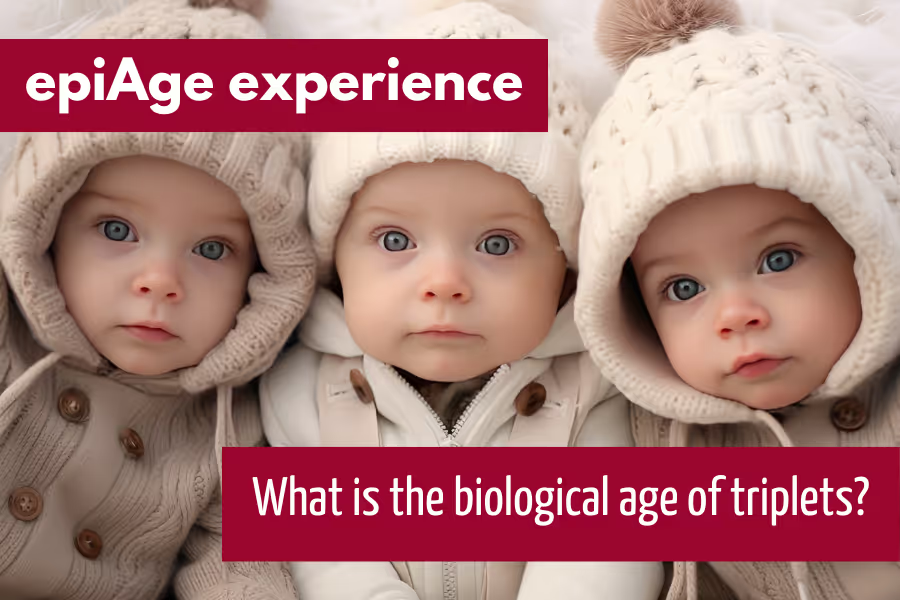A bundle of joy? How wonderful!
Three bundles of joy? Wonderful, but perhaps slightly… overwhelming?
Not for epigeneticists, though: triplets are “the” ultimate fantasy!
You have no doubt heard about twin studies, which are particularly popular in the field of preventative medicine and increasingly in (epi)genetics. Why is that?
Identical twins provide the dream constellation for science to observe the evolution of many biological phenomena as well as the influence of nurture over nature or, in other words, epigenetics over genetics.
Indeed, identical twins are perfectly equipped for comparative studies since they share a common baseline. Not only do they boast virtually the same age and a very similar (if not completely identical) genetic make-up, but they usually share the same environment and upbringing, at least initially.
This makes it a lot easier to measure the impact of different lifestyles, lifestyle interventions, life events, medical treatments, you name it, as the twins age — all this with a minimum of confounding factors.
So imagine our delight when we found out that, unbeknownst to us, adult triplets had taken the epiAge test. Lo and behold, their results were biological ages of 32.77, 32.73, and 31.11.
It is difficult not to be proud of such accurate results, isn’t it?
We are certainly very curious to hear more about these triplets and to witness how their biological ages evolve, since they have decided to retake the test in a few months… So stay tuned!
++++
Further Reading
Hayasaki, Erika, Identical Twins Hint at How Environments Change Gene Expression, May 15th, 2018. Online: https://www.theatlantic.com/science/archive/2018/05/twin-epigenetics/560189/
Illustration
Hansuan Fabregas / pexels
 Back to all posts
Back to all posts